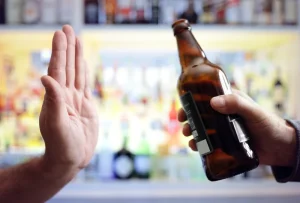Alcohol Misuse and Kidney Injury: Epidemiological Evidence and Potential Mechanisms Alcohol Research: Current Reviews

Notably, these mechanisms have not yet been validated experimentally in the kidney. Additional research is needed to clarify if alcohol does indeed promote kidney injury and the mechanisms by which alcohol-induced kidney injury may occur. Age, primary diseases, initial eGFR, and https://ecosoberhouse.com/ individual differences can also affect the prognosis of patients with CKD and interfere with the effects of alcohol on the kidneys [7,10,67,94]. Since aging, metabolic diseases, and hypertension impair kidney function, they can also influence the effect of ethanol on the kidneys.
Mental health

Extended and severe conditions, such as CKD or kidney failure, might be irreversible. Treatment options such as dialysis or kidney transplantation may become necessary (20). Kidney failure and alcohol use are often linked, and it seems there’s no turning back once damage is done.
- It is the body’s way of warning of a potentially serious medical condition, so it is best not to ignore it.
- Association between total alcohol intake and rapid decline in kidney function (odds ratios) with three levels of adjustment in relation to baseline alcohol consumption among 5729 participants.
- Small amounts of alcohol can be easily filtered and disposed of, but too much alcohol affects how the kidneys work, impairing them to the point of not being able to properly purify the blood of the alcohol content.
Can drinking cause kidney cancer? Risks and preventions
If an acute alcoholic binge induces extensive vomiting, potentially severe alkalosis may result from losses of fluid, salt, and stomach acid. One example of an alcohol-related acid-base disturbance already has been mentioned in relation to low levels of phosphate (i.e., respiratory alkalosis resulting from hyperventilation during alcohol withdrawal). Other acid-base disturbances are possible as a result of excessive alcohol consumption.
Can alcohol cause high protein in the blood?

Remember that alcohol on an empty stomach can cause blood sugar levels to drop. Additional ingredients in mixed drinks may also add carbohydrate that must be considered. For people with kidney disease who are having dialysis or on a low-potassium and/or low-phosphate diet, alcohol can be particularly challenging. Kidney dietitian Nick McAleer from Royal Devon and Exeter NHS Foundation Trust offers advice about choosing drinks. One of the main responsibilities of the kidneys is to sift out harmful substances from the blood, and alcohol is one such substance.
Treatments for acute kidney injury
According to the American Kidney Fund (AKF), there are five stages of chronic kidney disease (CKD), with stage 1 representing the earliest and mildest stage and stage 5 representing the most advanced and severe. According to a 2017 review, the question of whether alcohol consumption affects kidney function remains controversial. Alcohol is a toxic substance that can damage the body’s organs and tissues. There are mixed conclusions about whether or not alcohol causes kidney failure specifically. Indeed, liver transplantation is one of two options available today for treating hepatorenal syndrome.
- Full recovery is possible, but there is the risk that the kidneys will be damaged beyond normal functioning.
- In a study by Rubini and colleagues (1955), subjects who consistently drank about 4 ounces (oz) of 100-proof bourbon whiskey experienced decreased sodium, potassium, and chloride excretion (i.e., increased retention of solutes).
- If alcohol continues to accumulate in your system, it can destroy cells and, eventually, damage your organs.
- The hormones that control kidney function can also be adversely affected.
By promoting liver disease, chronic drinking has further detrimental effects on the kidneys, including impaired sodium and fluid handling and even acute kidney failure. When you drink heavily, your kidneys have to work harder to filter out the alcohol. And in rare cases, binge drinking — five or more drinks at a time — can cause a sudden drop in kidney function called acute kidney injury.

Cancer experts strongly recommend not drinking alcohol at all due to its potentially harmful effects on the body. Alcohol is known to increase your risk for several different types of cancer and cause kidney damage over time. The Joslin Diabetes Center notes that kidney problems, whether as the result of failure or disease, are serious threats to health and wellbeing.
Understanding the Risks of Smoking and Kidney Disease
This happens when the kidneys lose the ability to properly filter blood and maintain proper fluid and electrolyte balance (7). In severe cases, dialysis or a kidney transplant is needed for survival (8). The kidneys are vital in maintaining the body’s internal balance and overall health. These bean-shaped organs filter waste products, excess fluids, and toxins from the blood to form urine. In this article, we will discuss the long-term effects of alcohol on the kidneys, the first signs of kidney damage from alcohol, and all the important facts you need to know.
Many studies have shown that alcohol consumption is related to cardiovascular disease, urinary protein, and CKD [3,6,16,45,66–69]. This review focused on 21 clinical studies of the relationship between alcohol consumption and CKD, including 13 cohort studies and 8 cross-sectional studies. The characteristics of the study design and other details of these studies are presented in Table 1. Although most of the alcohol is metabolized in the liver, the kidneys are equally important in the metabolism and excretion of ethyl alcohol. Some enzymes that are necessary for ethanol metabolism, such as alcohol dehydrogenase, CYP2E1, and CYP24A1, have been found in the kidneys [22,23].
Ethyl alcohol and water are the main ingredients of alcohol beverages, but we cannot ignore other bioactivators in liquors, such as polyphenols. Kaartinen et al. found that an abnormal immunoreaction may be related to acetaldehyde, the first metabolite of ethanol, which how alcohol affects the kidneys can form covalent adducts with different proteins to activate the immune response[49]. This is the area at the back of your abdomen, under your ribcage on both sides of your spine. This pain may be felt as a sudden, sharp, stabbing pain or more of a dull ache.







Deixe uma resposta
Want to join the discussion?Feel free to contribute!